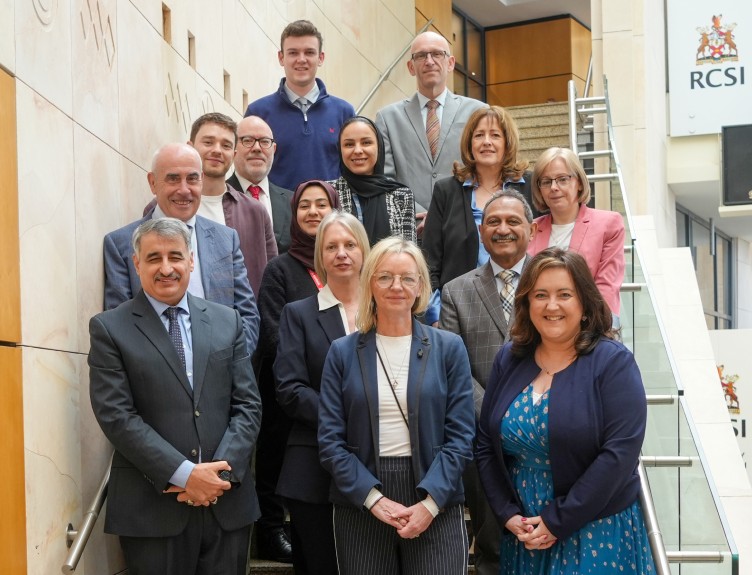Balancing Technological Advancement with Educational Integrity in Medical Education

A critical Reflection by Dr Jamal Hashem, Lecturer in Surgery & Academic Director of Artificial Intelligence at RCSI Bahrain Tertiary education stands at a critical juncture where digital innovation promises transformative learning experiences, while simultaneously challenging traditional notions of educational integrity and stakeholder trust. The rapid integration of artificial intelligence (AI), virtual reality (VR), and digital assessment platforms into university curricula demands careful consideration to ensure institutions maintain public confidence while embracing technological advancement. This tension is particularly critical in medical education, where graduates directly impact patient safety and public health outcomes. The impetus for digital innovation in medical education has never been stronger. As we enter the clinical AI era, contemporary healthcare delivery increasingly relies on digital technologies. Medical schools must prepare graduates for this technological landscape while ensuring they possess fundamental clinical skills and ethical grounding.
Trust in medical education concerns various stakeholders, including students, faculty, employers and patients. Digital innovation can either enhance or erode that trust, depending on how institutions manage the adoption of these technologies. Surveys indicate that while students eagerly embrace e-learning tools, they are sceptical about the validity of online assessments. Faculty recognise the educational potential of digital tools but question their impact on pedagogy and professional identity formation. Employers require graduates to attain digital competencies, clinical reasoning and interpersonal skills.
Artificial intelligence presents compelling opportunities for personalised learning, instant feedback and adaptive evaluations. Concomitantly, generative AI tools also pose risks to scholastic integrity and the development of clinical judgement. Thus, medical schools must establish clear guidelines for appropriate AI utilisation. Rather than narrowly focusing on plagiarism detection, institutions should emphasise how AI can augment learning and stimulate critical thinking. At RCSI Medical University of Bahrain, since 2022, we have delivered a dedicated AI in Healthcare module, explicitly focusing on the ethical implications of AI and providing our students with the skills to evaluate AI healthcare solutions meaningfully and contribute effectively to healthcare advancements.
Integrating virtual and augmented reality into simulation-based learning allows students to practice emergency care delivery without risking patient safety, creating highly realistic, safe environments. To maintain trust and graduate competent healthcare professionals, virtual simulations must be supplementary as they cannot replace the nuances of fundamental patient interactions. RCSI Bahrain has advanced this principle through the ongoing development of an AI-driven simulated patient, which will provide our students with additional history-taking opportunities with the advantage of providing immediate, personalised feedback and the ability to track their progress. These opportunities for instant feedback are not always feasible during clinical rotations. Crucially, to maintain trust, any adoption of VR/AR technologies should flow directly from evidence-based research demonstrating effective translation of acquired skills into clinical practice.
Digital assessments represent another pivotal innovation. Online testing platforms and digital portfolios facilitate timely, standardised, personalised feedback and significantly reduce administrative burdens. Nevertheless, digital assessments introduce security, equity of access and assessment validity challenges. Robust digital assessment systems must safeguard academic integrity while ensuring fair and reliable evaluation of all students.
Essential to the successful integration of digital innovation is a strategy based on assessment of stakeholder needs and effective governance. Transparent decision-making processes, including all relevant stakeholders, students, faculty, healthcare providers, and regulatory bodies, must clearly articulate what technologies are being adopted and why, their anticipated outcomes, and methodologies for rigorous evaluation of these innovations. At RCSI Bahrain, governance around AI adoption involves dynamically updated institutional guidelines and proactive staff training. Faculty members receive tailored workshops on leveraging AI tools to enhance research and improve the students’ learning experience. Following this, several faculty members have introduced innovative teaching initiatives in their fields. It is crucial that institutions explicitly avoid technology adoption merely for its own sake, rigorously evaluating innovations to ensure they meaningfully enhance the educational experience and the competencies of their graduates.
Ultimately, the competence of medical graduates is the definitive measure of success in this digital transformation era. Physicians must seamlessly integrate technological proficiency with humanistic care. Building a professional identity in this digitally infused landscape demands thoughtful technology integration in ways that amplify rather than detract from patient-centred care. At RCSI Medical University of Bahrain, our approach is to embed learning about technology and technology-enhanced learning throughout the curriculum.
Digital innovation in medical education thus presents both an opportunity and a responsibility. Institutions must balance adopting new technologies with preserving the values that uphold public trust in the profession. Achieving this balance requires active stakeholder engagement, institutional transparency, and continuous evaluation against evidence-based outcomes. Only through collaborative effort between educators, developers, regulators, and healthcare systems can digital transformation genuinely elevate rather than compromise the standards of professional medical education.



